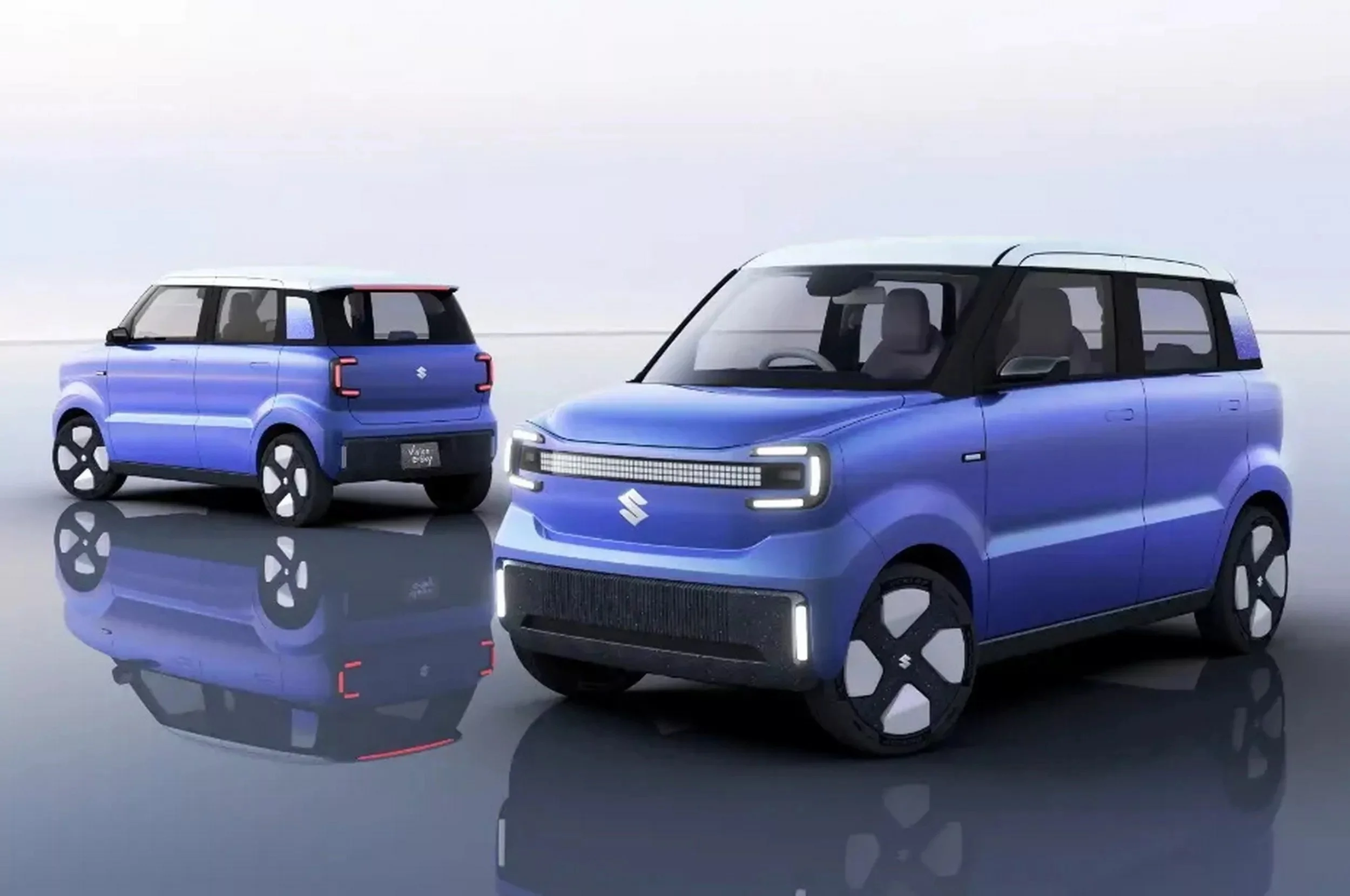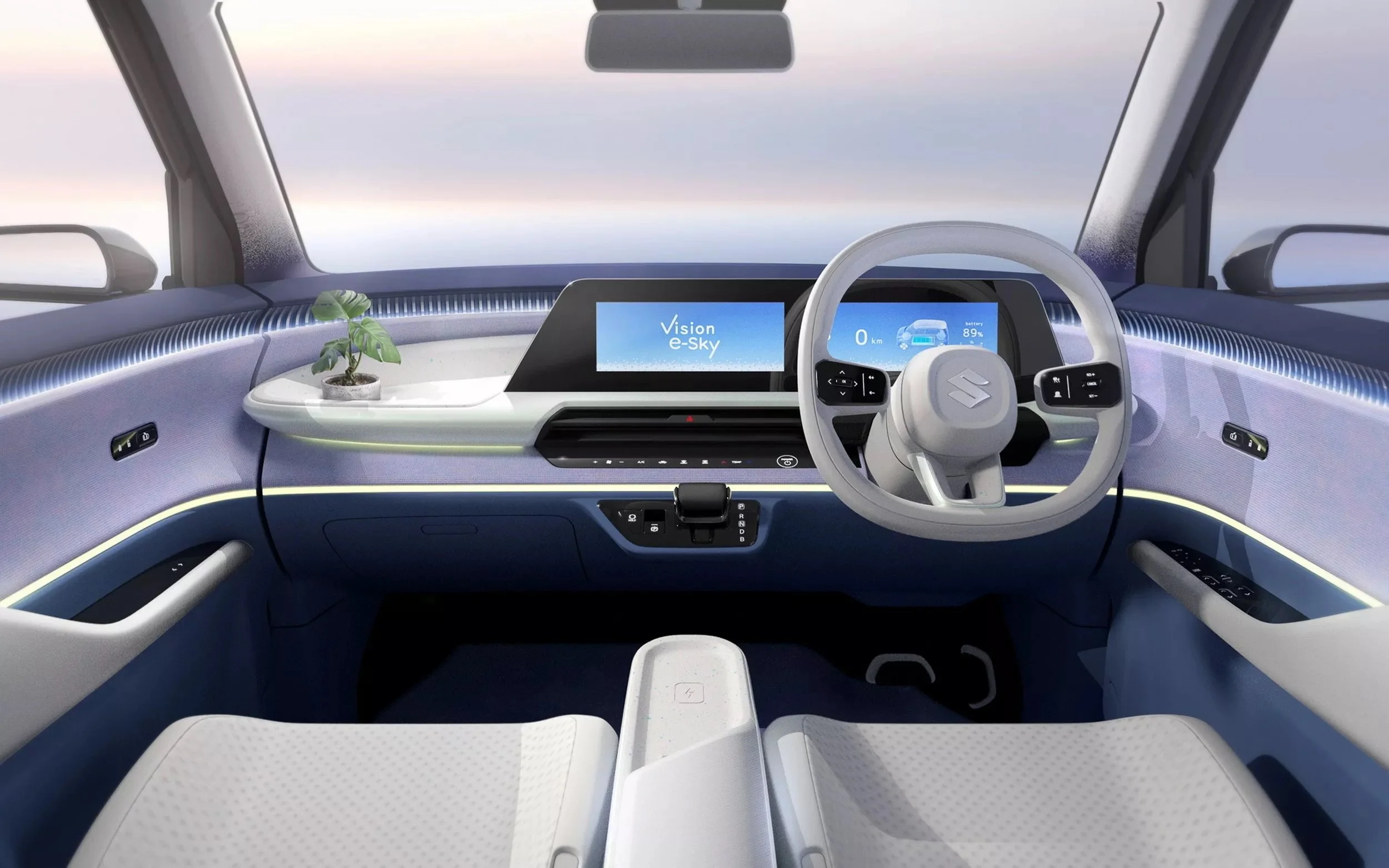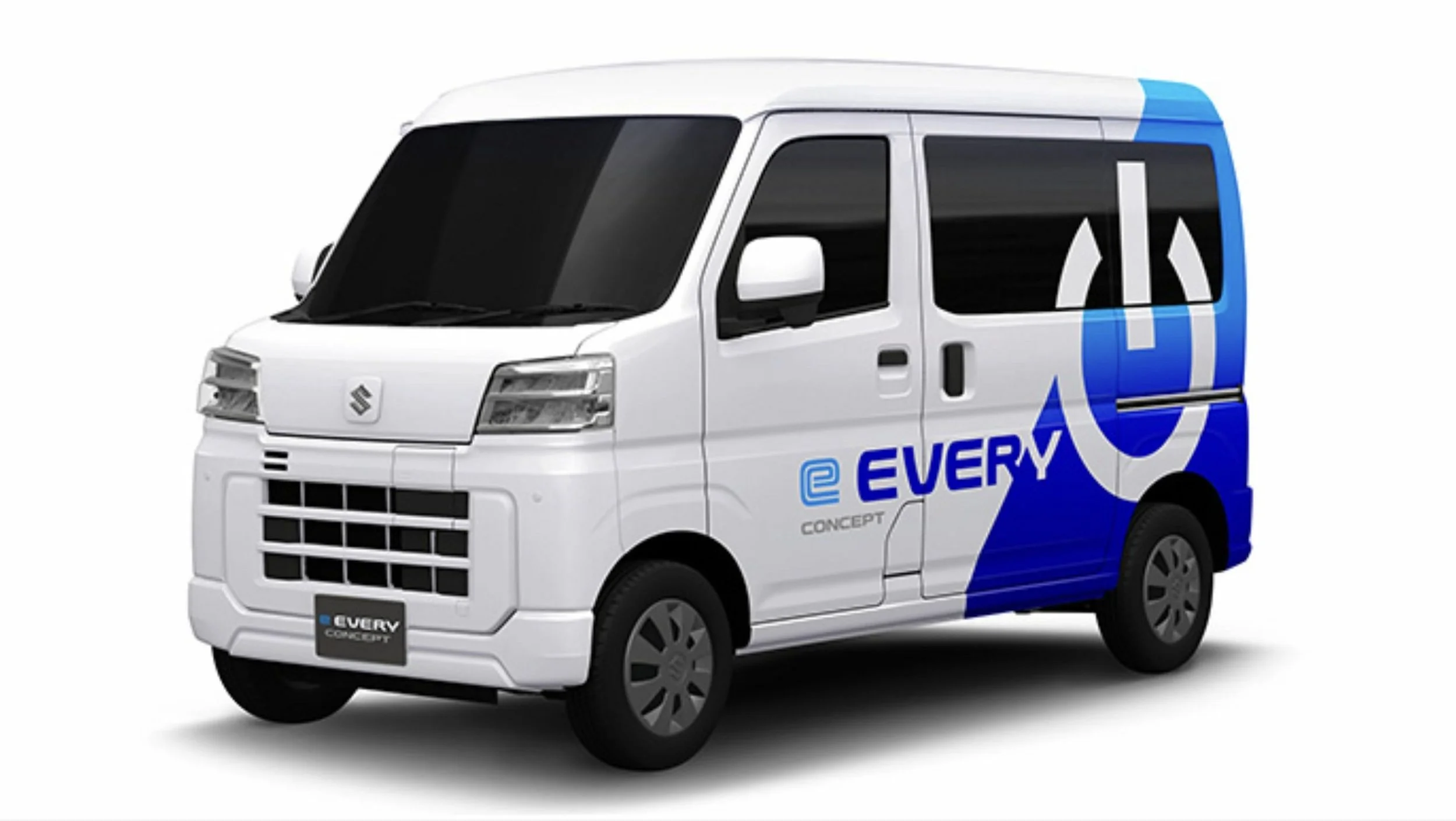Suzuki’s Electric Future: Vision e-Sky and e-Every Concepts Bring Realistic EVs to Japan
Suzuki Vision e-Sky
While some automakers are chasing massive battery packs and luxury SUV bragging rights, Suzuki is quietly focusing on what Japan actually needs: small, efficient, fully electric vehicles that fit real life. At the upcoming Japan Mobility Show 2025, Suzuki will debut two new battery electric concepts that show a refreshingly practical direction — the Vision e-Skyand the e-Every BEV.
The Suzuki Vision e-Sky is a pure electric minicar concept that embodies Suzuki’s design theme of being Unique, Smart, and Positive. It’s small, upright, and cheerful — a perfect fit for Japan’s dense cities and narrow streets. Suzuki says it’s the “BEV minicar that’s just right for your life,” and for once, that slogan feels true. According to early reports, it promises over 270 km (around 168 miles) of range on a full charge, with production planned for fiscal year 2026. Dimensions sit right in the kei-car zone at around 3.4 meters long, 1.47 wide, and 1.62 tall, keeping it lightweight, nimble, and easy to park — everything a Japanese commuter EV should be.
Suzuki Vision e-Sky Interior
Then there’s the e-Every concept, a fully electric version of Suzuki’s long-running microvan. This one targets commercial users and delivery services, a huge market segment in Japan. If you’ve driven around Tokyo or Chiba, you’ve probably seen the little red Japan Post BEV vans quietly zipping around town. These are Mitsubishi’s Minicab-MiEV models — early examples of how kei-class electrics can work for urban deliveries. Suzuki’s new e-Every concept follows a similar formula, aiming to modernize the segment with fresh design and updated battery tech.
Suzuki e-Every Kei-Van
Concept for the e-Every Post Van
Mitsubishi BEV Post Van Already in Service
Together, these two models represent a smart, realistic step for Japan’s EV ecosystem. The Vision e-Sky targets individual drivers who need a compact city car with real range, while the e-Every aims squarely at the small-business and logistics side of the market. Unlike some of the larger, expensive EVs being pushed elsewhere, Suzuki’s focus stays grounded in Japanese life: affordable mobility and practicality.
If Suzuki can bring both models to market at reasonable prices, they could become a familiar sight across Japan by 2026. The Vision e-Sky could give more kei-car owners a reason to go fully electric, and the e-Every could become the new go-to last-mile delivery van for small businesses and postal services.
It might not grab headlines like a Tesla Cybertruck or a Toyota concept supercar, but this is exactly the kind of EV strategy Japan needs — realistic, efficient, and genuinely useful.










